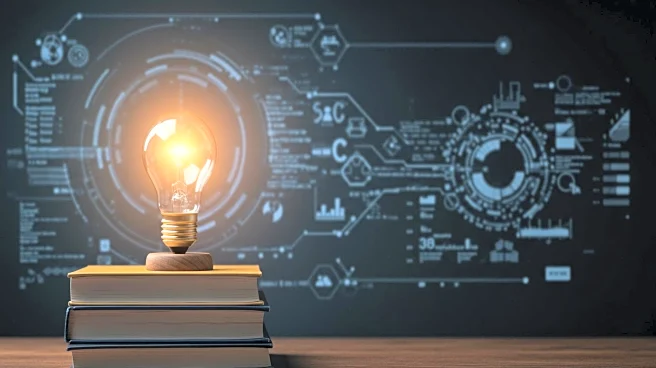What is the story about?
What's Happening?
The application of AI in educational contexts is being scrutinized through the lens of Goodhart's Law, which states that when a measure becomes a target, it ceases to be a good measure. This principle is evident in the way standardized testing has evolved in the U.S. education system. Initiatives like No Child Left Behind and Common Core have transformed educational metrics into targets, leading to a focus on test-taking skills rather than actual learning. AI's role in this scenario is highlighted by its ability to produce standardized outputs, such as the five-paragraph essay, which are assessed using rigid rubrics. This has led to a situation where students might rely on AI to complete assignments that do not truly reflect their understanding or mastery of the subject matter.
Why It's Important?
The implications of AI's involvement in education are significant, as they highlight the shortcomings of standardized testing and the potential for AI to exacerbate these issues. The focus on metrics over genuine learning can undermine the educational process, leaving students ill-prepared for real-world challenges. This situation also reflects broader societal issues, such as the undervaluing of teachers and the impact of austerity measures on public services. The reliance on AI for completing standardized assignments could further diminish the role of critical thinking and creativity in education, affecting the future workforce's ability to innovate and adapt.
What's Next?
The future of AI in education may involve a reevaluation of how educational success is measured. Stakeholders, including educators, policymakers, and AI developers, might need to collaborate to create systems that prioritize genuine learning outcomes over standardized metrics. There could be increased advocacy for educational reforms that empower teachers and reduce the emphasis on standardized testing. Additionally, discussions around ethical AI use in education may gain traction, focusing on how technology can support rather than hinder the learning process.
Beyond the Headlines
The deeper implications of AI's role in education touch on ethical and cultural dimensions. The use of AI to complete assignments raises questions about academic integrity and the value placed on traditional educational methods. It also highlights the cultural shift towards technology-driven solutions, which may not always align with educational goals. Long-term, this could lead to a reevaluation of the purpose of education and the skills deemed essential for future generations.















